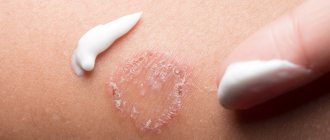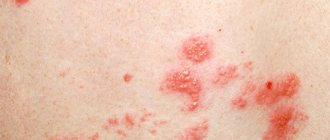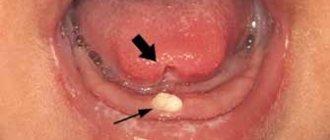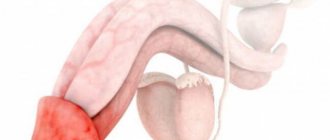Many people do not really understand what candidiasis is. The name of the disease sounds somewhat scary. This is not at all surprising, only when faced with the disease one on one, a person begins to think deeply about the meaning of the name, looking for ways to recovery. Among the many types of candidiasis, intestinal candidiasis is very common. Just before considering the disease itself, methods of its treatment, you need to understand what the symptoms of intestinal candidiasis are.
What is oral candidiasis?
Oral candidiasis (also called oral thrush) is an infection of the mouth caused by the yeast-like fungus Candida. These microorganisms are part of a healthy microflora, but under certain circumstances their reproduction disrupts the favorable environment and becomes a source of disease processes. Inflammation and plaque on the tongue, ulcers on the mucous membrane and discomfort in the mouth - this disease is called oral candidiasis.
Infants are most susceptible to this disease, but at this age it is treated faster and is tolerated almost painlessly. Oral thrush is often observed in adults after 50 years of age, when the immune system is already weakened. Oral candidiasis is less common in men than in women. Recently, the percentage of cases has increased significantly, which is associated with uncontrolled use of medications: weakening of cellular immunity increases the risk of oral candidiasis after antibiotics, or rather their improper use. Microbiology, the science of microorganisms, studies the essence of oral candidiasis. And she successfully copes with her task, at the moment this disease has been studied in detail, and doctors know all the methods of treating and preventing infection.
Causes of oral candidiasis
A healthy person is still a carrier of fungi of the genus Candida, since they are part of the microflora and calmly coexist with other microorganisms without causing harm. But any change in the balance in the body can lead to rapid proliferation of bacteria and the development of disease. A weakened state of immunity plays a key role in the etiology of oral candidiasis, but any of these reasons can be the starting point for the onset of the disease:
- pregnancy;
- immunodeficiency states;
- infectious processes;
- long-term treatment with antibiotics or improper use of medications;
- injuries and damage to the oral mucosa;
- insufficient oral hygiene;
- contact with an already sick person.
Structure and reproduction
What does Candida look like? Fungi of the genus Candida have a somewhat elongated shape and, under favorable conditions, are capable of forming false mycelium (mycelium), consisting of elongated cells. The peculiarities of Candida representatives include the fact that they are capable of forming only chlamydospores, which are not true spores, but, nevertheless, have an improved defense mechanism. In fact, this form of existence of candida resembles the cysts formed by some bacteria: chlamydospores have a dense outer shell that protects the fungus from aggressive environmental factors.
Spores play a significant role in the spread of candida, since in this form the fungus can remain viable in the environment for a long time until it enters the body of a new host. Fungi reproduce by budding. Candida mushrooms, like many others, are sensitive to the acid-base balance and are able to change it in their favor. The most favorable conditions for the development of microorganisms are slightly alkaline or neutral, therefore, answering the question “what is Candida afraid of?”, we can say that the fungus dies in an acidic environment.
Diagnosis of oral candidiasis
Candidiasis (thrush) of the oral cavity can be detected during an examination by a dentist if the patient has characteristic complaints. The doctor examines the condition of the oral mucosa, examines scrapings, and carefully examines the hair and skin. If you have oral candidiasis, you also need a blood test to check your glucose levels and rule out diabetes. The sooner you detect the presence of this infection, the easier it will be to get rid of it, so you should not delay diagnosis just because the symptoms do not cause you discomfort.
Symptoms of oral candidiasis
- Infection is characterized by the appearance of swelling and a whitish coating on the mucous membranes of the cheeks, lips, and tongue. When the plaque is removed, the surface bleeds, and the patient experiences a burning sensation.
- With oral candidiasis, the tongue and throat become sensitive, and any contact is painful for the patient.
- Signs of oral candidiasis also include cracks in the corners of the lips and redness of the mucous membrane.
- Symptoms of oral thrush include severe dry mouth, a feeling of tightness of the mucous membrane, and roughness of the internal surfaces.
- Patients often complain of increased temperature due to oral candidiasis. Sometimes this disease is accompanied by the appearance of small ulcers on the inside of the lip and cheek mucosa, which are filled with pus and emit a characteristic odor of oral candidiasis.
Signs of oral candidiasis in HIV diseases are slightly different from traditional ones. In this case, the infection spreads quickly and immediately becomes acute, and plaques and plaque appear not only in the mouth, but also in the genital area. With HIV, thrush of the oral mucosa is difficult to treat, so even with minor symptoms it is better to visit a doctor and check your health.
Forms and symptoms of the disease
Candida mushroom
Intestinal candidiasis can take different forms, depending on the cause of the active proliferation of the fungus. Among all forms, they most often suffer from candidal dysbiosis, which is known as non-invasive candidiasis. This form of the disease is expressed by damage to the intestinal mucosa. It occurs through the active reproduction and growth of the Candida fungus or if the patient suffers from individual hypersensitivity. The form of fecal candidiasis never develops as an independent disease. It occurs as a complication of peptic ulcers.
The most complex and rare type is considered to be the diffuse or invasive form. When it develops, the patient experiences loose stools, in which there are traces of blood, and erosive-pseudomembranous colitis. This form usually develops in HIV-infected patients and those suffering from cancer. It can develop in people who regularly use glucocorticosteroid drugs, immunosuppressants and cytostatics. The main symptoms of intestinal candidiasis:
Classification of oral candidiasis
This disease is usually divided into several types, each of which has its own characteristic features. Experts distinguish between acute and chronic oral candidiasis.
Acute pseudomembranous candidiasis
Characteristic of infants with weakened immunity. Oral candidiasis, or oral candidiasis, can be triggered by a previous infectious disease or gastrointestinal disorder. The disease is transmitted through a pacifier or dishes; the disease manifests itself in the form of a light or grayish coating on the mucous membrane. At the initial stage, plaque is painlessly removed; with the development of candidiasis of the oral mucosa and pharynx, it thickens and spreads in the oral cavity. It is almost impossible to remove plaque on the tongue without causing bleeding.
Acute atrophic candidal stomatitis
Accompanied by peeling of the integument, dryness and burning of the mucous membrane, it is painful for the patient to eat and touch the infected area. With this form of oral candidiasis, the infection can spread further - to the larynx, pharynx and even the esophagus.
Chronic hyperplastic candidiasis of the oral cavity
It is characterized by a change from a whitish coating to a grayish-yellow one, after removal of which slight bleeding occurs. Along with plaque, plaques and thickenings appear that cannot be cleaned off or removed; they go away on their own during the treatment process.
Chronic atrophic candidiasis of the oral cavity
It is diagnosed when inflammation spreads to the skin and cracks appear in the corners of the mouth. In this case, the tongue becomes a shiny, rich pink color, and the vessels are clearly visible on it. Then the infection spreads to the internal organs. This type of oral candidiasis can occur due to improper installation of dentures, plates and crowns, which rub and injure the mucous membrane.
What promotes the proliferation of Candida fungus in the intestines?
To avoid the development of intestinal candidiasis, you need to know what factors cause the disease. Only in this way can you partially avoid the risk of contracting such an unpleasant disease. The intestinal mucosa is affected by:
- when the endocrine system malfunctions, for example, with diabetes mellitus, adrenal tumors;
- for various diseases and pathologies of the gastrointestinal tract;
- in case of immunodeficiency caused by pregnancy, stress, nervous strain, depression, etc.
- physiological and psycho-emotional factors;
- when the patient has tumors;
- when there is a disturbance in the hematopoietic process;
- if there is HIV infection in the body;
- for autoimmune and allergic diseases requiring treatment with glucocorticosteroid drugs.
In addition to the main factors causing the development of intestinal candidiasis, you can get sick even if you fail to self-medicate simple infectious diseases with unknown drugs. For example, many people believe that by taking an antibiotic a couple of times you can very quickly recover from a particular disease. But at the same time, they forget that an antibiotic is not a solution to all problems; sometimes for recovery, it is enough to take a regular, safer pill.
Overuse of antibiotics disrupts the normal intestinal microflora and contributes to the development of intestinal candidiasis.
In addition, the disease can develop from excessive alcohol consumption, lack of protein in the daily diet, or irregular nutrition. In order to avoid this disease, you need to eat right, and the food should be nutritious and rich in healthy vitamins and microelements.
Treatment of oral thrush
The treatment of this disease is carried out by the dentist, although he may seek advice from a therapist, immunologist or endocrinologist. To get rid of this disease, there are many medications, from which a specialist will choose the one that is right for you. Do not forget that different medications are used to treat oral candidiasis in adults and children. Also, to speed up recovery, you should follow a special diet that your doctor will prescribe; it is important for restoring the mucous membranes after candidiasis of the mouth and throat. Many patients neglect visiting a specialist and prefer advice from those who have already encountered this infection, as well as traditional methods. Such behavior is extremely dangerous; oral candidiasis cannot be treated based on reviews on forums or recommendations from friends. This can provoke unforeseen complications and cause serious harm to health. The doctor will accurately determine the cause of your disease and prescribe a drug that is suitable for your physiological characteristics. Read more about the treatment of oral candidiasis in the article.
Candida treatment
How to identify candida? Depending on the type of infection, various laboratory research methods are used. If a fungal infection is confirmed, then the patient faces the following question: how to treat Candida fungus? In some cases, the patient decides to make do only with the use of external ointments, but this is fundamentally the wrong approach. Treatment of candida in the blood, intestines, on the skin and in any other manifestations must be systemic, otherwise the fungus will soon return. In addition, treatment of Candida fungus in the intestines should be accompanied by taking medications that restore the enzymatic activity of the gastrointestinal tract and strengthen the immune system.
What doesn't Candida like? NPK Optisalt has developed a complex of drugs that can suppress the growth of fungus, get rid of invasion and restore the normal functioning of all organ systems.
Prevention of oral candidiasis
The occurrence of this disease is a very unpleasant and painful phenomenon, fortunately, it is quite easy to avoid by following the recommendations. One of the main causes of infection is weakened immunity, so the basic rule for preventing the disease is to treat any disease at the right time and take medications strictly as prescribed by the doctor. To avoid candidiasis of the oral cavity, pharynx and larynx, hygiene, visiting a good dentist, professional ultrasonic cleaning and other preventive measures will help. Oral candidiasis in women is often due to hormonal imbalance; if you have symptoms of the disease, you should pay attention not only to the affected area, but also to the condition of the body as a whole.









